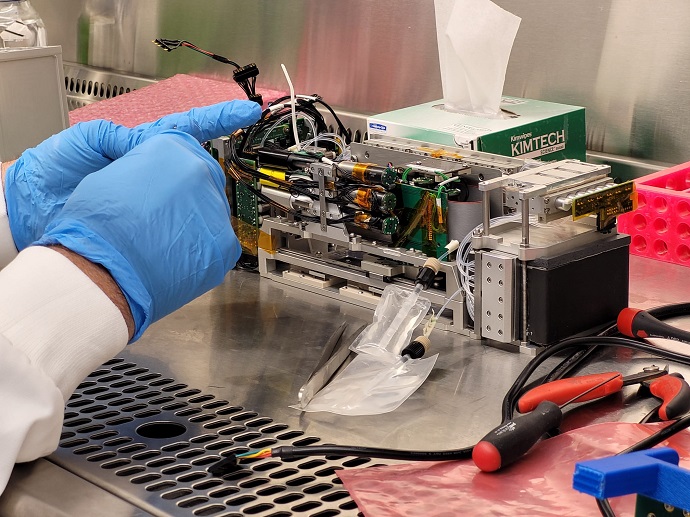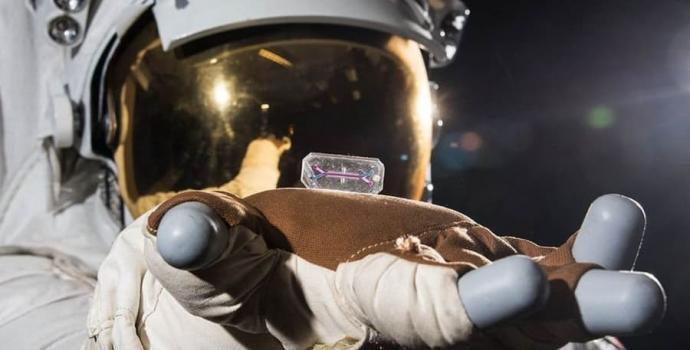Israeli company SpacePharma launched its ninth laboratory into space in the early hours of August 1 from the Wallops Flight Facility in Virginia. The laboratory, sent on NASA’s supply mission to the International Space Station launched by Northrop Grumman, includes four scientific experiments, scheduled to take place this month, starting Friday, August 4, and will land back on Earth on August 27, 2023. Among the experiments to be conducted are trials on two commercial cancer research drugs and one for a drug to treat a deadly brain disease.
SpacePharma, which is supported by the Israel Space Agency at the Ministry of Innovation, Science and Technology, has in recent years developed a miniaturized SPNR 2 laboratory weighing 3.4 kg. Using this laboratory, it is possible to conduct real-time remote-control experiments and investigate pharmacological applications under conditions of zero gravity in outer space.
One of the trials could pave the way for the development of drugs to combat neurodegenerative diseases. The ZePrion experiment will examine how to prevent the abnormal folding of prion proteins, which causes the deadly neurodegenerative disease, Creutzfeldt-Jakob. The purpose of the experiment is to identify molecules that can bind to the protein during the misfolding process and thus, in effect, prevent it.

Discovering a variety of drugs
Why was the ZePrion experiment not performed on Earth? Why send a laboratory to outer space? The answer lies in the microgravity conditions that exist in space. The ability to examine the crystallization of tiny molecules and proteins in an intermediate state is not possible under normal gravitational conditions.
The experiment’s initiator, Ms. Alice Anane, founder of the CJD Foundation Israel, together with the lead researchers for the experiment, Prof. Pietro Faccioli of Milan-Bicocca University and Prof. Emiliano Biasini of the University of Trento in Italy, are pinning their hopes on microgravity, in which materials are in a state of low density and undergo a slow crystallization process. In this state, it will be possible for the first time to monitor the protein and verify the compatibility of substances that may prevent abnormal folding.
Although Creutzfeldt-Jakob disease is relatively rare, a successful experiment may also help in the study of other neurodegenerative diseases, such as Alzheimer’s and Parkinson’s – diseases also characterized by misfolding proteins that cause the death of neurons in the brain. Thus, the ability to examine the interaction with the prion protein will open new channels for discovering a variety of drugs.
“A Breakout Year": SpacePharma’s 35th launch of an experiment
Another experiment launched July 31 will examine a new Israeli development of a drug called Doxil, used in the treatment of ovarian cancer. The drug is packaged in liposomes – tiny fat bubbles that are aimed at ensuring that the drug is released only at its target site. In the experiment in space, the researchers, Prof. Chezy Barenholz and Prof. Sara Eyal, will test the stability over time of the liposome and the drug within it under microgravity conditions, in order to examine the possibility of producing them in space.
For SpacePharma, this is the ninth launch into space and its 35th experiment. SpacePharma CEO, Mr. Yossi Yamin said: “2023 is a breakthrough year and we are expected to see a flood of pharma technologies from space, with no less than three of the largest pharma companies in the world beginning to research applications in outer space in order to improve drugs for patients on Earth.”











